How Does Ppc Marketing Work?
Hey there! Are you curious to learn about how PPC marketing works? Well, you’ve come to the right place! In this article, we’re going to dive into the exciting world of PPC marketing and unravel its secrets. So, get ready to learn something new and discover how PPC can make a big impact in the digital advertising landscape.
Picture this: you’re scrolling through your favorite website or searching for something on Google, and suddenly, an ad catches your attention. Have you ever wondered how those ads show up so perfectly timed and relevant to what you’re looking for? That’s where PPC marketing comes into play.
PPC, short for Pay-Per-Click, is a type of online advertising where advertisers pay a fee each time their ad is clicked. Essentially, it’s a way for businesses to drive targeted traffic to their websites and reach potential customers. But how does it all work behind the scenes? Let’s find out!
With PPC marketing, businesses bid on specific keywords relevant to their products or services. When a user searches for those keywords, an auction takes place in real-time, determining which ads appear on the search results page or other websites. The winning ads get displayed to the user, and if they click on the ad, the advertiser pays a predetermined amount. It’s a win-win situation because businesses get their ads in front of interested users, while users get to discover products and services that match their needs.
Now that you have a basic understanding of how PPC marketing works, it’s time to explore the different types of PPC ads, the strategies behind successful campaigns, and how you can leverage the power of PPC to grow your business. Let’s dive in!
PPC marketing, or pay-per-click marketing, is a digital advertising model where advertisers pay a fee each time their ad is clicked. It works by bidding on specific keywords related to their target audience. When a user searches for those keywords, relevant ads are displayed. PPC campaigns can be highly targeted, allowing businesses to reach their ideal customers. Ads are shown on search engine results pages, websites, or social media platforms. By leveraging PPC, businesses can increase their online visibility and drive traffic to their website.
How Does PPC Marketing Work?
Digital marketing has revolutionized the way businesses promote their products and services, and one of the most effective strategies is Pay-Per-Click (PPC) marketing. PPC advertising involves creating ads that appear on search engines, social media platforms, and other websites. But how does PPC marketing work? In this article, we’ll delve into the intricacies of PPC marketing, exploring the process, benefits, and tips for success.
Understanding the Basics of PPC Marketing
PPC marketing is a type of online advertising where businesses pay a small fee every time one of their ads is clicked. These ads are displayed prominently on search engine results pages (SERPs), social media platforms, and other relevant websites. The most common type of PPC advertising is search engine advertising, where ads appear at the top of search engine results when users search for specific keywords.
To get started with PPC marketing, businesses need to select relevant keywords and create compelling ads. The ads are then auctioned off, with businesses bidding on how much they are willing to pay for a click on their ad. The higher the bid, the more likely the ad will appear in top positions.
Once the ads are live, businesses are charged a predetermined amount each time someone clicks on their ad. This fee, known as the cost-per-click (CPC), can vary depending on factors such as the competitiveness of the keywords and industry. By carefully managing their PPC campaigns, businesses can optimize their ad spend and drive valuable traffic to their websites.
The Benefits of PPC Marketing
PPC marketing offers a range of benefits for businesses looking to increase their online presence and drive targeted traffic. First and foremost, PPC allows businesses to target their ads to specific audiences based on factors such as location, interests, and demographics. This targeted approach ensures that ads are shown to users who are most likely to be interested in the products or services being offered.
Additionally, PPC marketing offers measurable results. Unlike traditional advertising methods, businesses can track the performance of their PPC campaigns in real-time. They can monitor metrics such as click-through rates, conversion rates, and return on ad spend, enabling them to make data-driven decisions and optimize their campaigns for maximum effectiveness.
Another significant advantage of PPC marketing is its immediate impact. Unlike other digital marketing strategies such as search engine optimization (SEO), which can take time to see results, PPC advertising delivers instant visibility. As soon as the campaigns go live, businesses can start driving traffic to their websites and generating leads or sales.
Tips for Successful PPC Marketing
While PPC marketing offers numerous advantages, it requires careful planning and execution to achieve the desired results. Here are some essential tips for running successful PPC campaigns:
1. Conduct thorough keyword research: Start by identifying the keywords that are most relevant to your business and have high search volumes. Use keyword research tools to find variations and long-tail keywords that have lower competition but still attract qualified traffic.
2. Optimize your landing pages: A well-designed landing page is crucial for converting clicks into leads or sales. Ensure that your landing page aligns with the message and offer presented in your ad and provides a clear call-to-action.
3. Monitor and adjust your bids: Keep a close eye on your campaign performance and adjust your bids accordingly. Increase bids for high-performing keywords to maintain top ad positions and decrease bids for underperforming keywords to optimize your budget.
4. A/B test your ads: Experiment with different ad formats, headlines, and calls-to-action to identify which variations resonate most with your target audience. Continuously test and refine your ads to improve their click-through rates and conversion rates.
5. Leverage ad extensions: Ad extensions provide additional information and features to your ads, making them more compelling and useful to users. Experiment with different extensions such as sitelinks, call extensions, and location extensions to enhance the performance of your ads.
6. Regularly review and analyze your data: Monitor key metrics such as click-through rates, conversion rates, and cost-per-conversion to gain insights into your campaign’s performance. Use this data to optimize your campaigns and make informed decisions about your PPC strategy.
By following these tips and continuously refining your PPC campaigns, you can maximize the effectiveness of your PPC marketing efforts and achieve your online marketing goals.
Understanding PPC Advertising Networks
PPC advertising networks play a crucial role in facilitating PPC marketing. These networks connect businesses with publishers who display their ads on relevant websites, search engines, and social media platforms. Understanding how these networks function is essential for optimizing the success of your PPC campaigns. In this section, we’ll explore the different PPC advertising networks and how they work.
Google Ads
As the most popular search engine worldwide, Google dominates the PPC advertising landscape with its platform, Google Ads. When you create a PPC campaign using Google Ads, your ads have the potential to appear on Google’s search results pages, as well as on the search results pages of its partner websites. Google Ads uses a bidding system where businesses bid for ad placement based on their chosen keywords and target audience.
Microsoft Advertising
Microsoft Advertising, formerly known as Bing Ads, is Microsoft’s PPC advertising network. Similar to Google Ads, Microsoft Advertising allows businesses to create PPC campaigns that display ads on Microsoft’s search engine, Bing, and its partner websites. While Microsoft Advertising has a smaller reach compared to Google Ads, it can still be a valuable platform for reaching a specific target audience, particularly for businesses in niche industries.
Facebook Ads
Facebook Ads is a PPC advertising network that enables businesses to create highly targeted ads that appear on users’ Facebook feeds and other Facebook-owned platforms such as Instagram and Messenger. With its extensive user base and advanced targeting capabilities, Facebook Ads offers businesses the opportunity to reach a vast audience and engage with users based on their interests, demographics, and behaviors.
Optimizing Your PPC Campaigns for Success
Running a successful PPC campaign requires continuous optimization and refinement. In this section, we’ll explore essential strategies and best practices for optimizing your PPC campaigns to achieve maximum results and return on investment.
Keyword Research and Selection
One of the cornerstones of a successful PPC campaign is identifying and targeting the right keywords. Conduct thorough keyword research to uncover relevant keywords with high search volumes and low competition. Consider using keyword research tools and analyzing competitor campaigns to gain insights into the most effective keywords for your industry. Continuously monitor and adjust your keyword selection to stay ahead of changing trends and search behaviors.
Ad Copy and Design
Crafting compelling ad copy and designing visually appealing ads is crucial for attracting clicks and engaging users. Ensure that your ad copy aligns with the intent of each keyword and highlights the unique value proposition of your products or services. Use action-oriented language and clear calls-to-action to encourage users to click on your ads. Test different ad formats and variations to identify which perform best and refine your ad design accordingly.
Targeting and Segmentation
Effective targeting and segmentation can significantly impact the performance of your PPC campaigns. Take advantage of the targeting options provided by the advertising networks to ensure your ads reach the most relevant audience. Segment your target audience based on demographics, location, interests, and behaviors to create highly targeted ads and increase the likelihood of conversions. Regularly analyze and adjust your targeting parameters based on performance data to optimize your campaign’s effectiveness.
Conclusion:
In conclusion, PPC marketing is a powerful tool for businesses to increase their online visibility, reach targeted audiences, and drive valuable traffic to their websites. By understanding the basics of PPC marketing, leveraging the right advertising networks, and optimizing campaigns through keyword research, ad copy, and targeting strategies, businesses can achieve significant results and maximize their return on investment. Remember to continually monitor and analyze your campaign performance, adapt your strategies based on data-driven insights, and stay up to date with the latest trends and best practices in PPC marketing. With diligence and effective management, PPC marketing can be a game-changer for businesses looking to thrive in the digital landscape.
Key Takeaways: How Does PPC Marketing Work?
- PPC stands for pay-per-click, a digital advertising model where advertisers pay a fee each time their ad is clicked.
- Advertisers bid on keywords relevant to their business, and their ads are displayed to users searching for those keywords.
- PPC campaigns can be set up on search engines like Google or social media platforms like Facebook.
- Ads are shown based on a combination of bidding price and ad quality score.
- PPC can be cost-effective and offers various targeting options to reach specific audiences.
Frequently Asked Questions
Welcome to our frequently asked questions section where we’ll break down the intricacies of how PPC marketing works. Whether you’re new to the world of digital advertising or seeking a deeper understanding, we’ve got you covered. Let’s jump right in!
1. What is PPC marketing and how does it work?
PPC, or pay-per-click, marketing is a digital advertising model where advertisers pay a fee each time their ad is clicked. It works by placing bids on specific keywords related to the products or services being promoted. When a user searches for those keywords, the search engine displays relevant ads. Advertisers who win the bid have their ad displayed prominently, and they pay only when their ad is clicked on. This targeted approach ensures advertisers are reaching potential customers at the right moment.
PPC marketing platforms, such as Google Ads, utilize complex algorithms to determine ad placement and to calculate the cost per click. These algorithms take into account factors such as keyword relevance, ad quality, and bid amount. By continuously optimizing their campaigns, advertisers can maximize the results of their PPC efforts, reaching their target audience effectively.
2. Why should I consider using PPC marketing for my business?
PPC marketing offers several advantages for businesses. Firstly, it provides immediate visibility, allowing you to reach potential customers instantly. Unlike other marketing strategies, PPC delivers immediate results, enhancing brand exposure and generating website traffic.
Additionally, PPC marketing allows for precise targeting, meaning you can reach a specific audience based on factors such as location, demographics, and interests. This ensures your ads are shown to people who are more likely to convert into customers, resulting in a higher return on investment (ROI). Finally, PPC is a flexible marketing method as it allows you to set your own budget and adjust it as needed, giving you complete control over your advertising spend.
3. How does the bidding process work in PPC marketing?
The bidding process in PPC marketing refers to how advertisers determine the maximum amount they are willing to pay for a click on their ad. Advertisers bid on keywords relevant to their products or services, and the bidding platform, such as Google Ads, compares these bids to determine ad placement. The highest bidder usually gets top placement, but other factors like ad quality and relevance also influence the final decision.
It’s important to note that winning the bid doesn’t necessarily mean paying the maximum amount. Advertisers pay the minimum amount required to surpass the next highest bidder, also known as the ad rank threshold. This ensures that advertisers pay a fair price based on competition and relevancy factors rather than just their initial bid amount.
4. Can PPC marketing help improve my website’s search engine ranking?
While PPC marketing itself doesn’t directly impact organic search engine rankings, it can indirectly benefit your website’s visibility. When you run PPC ads, they appear at the top of search engine results pages (SERPs) and attract clicks. As potential customers click on your ads and visit your website, it can lead to increased user engagement and better organic rankings over time.
Additionally, a well-crafted PPC campaign can help you identify high-performing keywords based on the data and insights you gather. By finding the most effective keywords through PPC advertising, you can optimize your website’s content and on-page SEO strategies, which can ultimately improve your organic search engine rankings.
5. How can I measure the success of my PPC marketing campaigns?
Measuring the success of your PPC marketing campaigns involves analyzing key metrics and performance indicators. These may include click-through rates (CTR), conversion rates, cost per conversion, return on ad spend (ROAS), and more. By tracking these metrics, you can evaluate which campaigns and keywords are driving the most valuable traffic and conversions.
PPC platforms provide detailed analytics reports that offer insights into your campaign’s performance. Utilizing these reports, you can make data-driven decisions to optimize your ads and refine your targeting. Remember, tracking and measuring the success of your campaigns regularly is essential to identify areas of improvement and maximize your return on investment.
Pay-Per-Click-Advertising Explained For Beginners
Summary
PPC marketing is a way for businesses to advertise online and only pay when people click on their ads. It works by allowing companies to bid on keywords and display their ads on search engine results pages. With PPC, businesses can target specific audiences, track their ad performance, and have more control over their marketing budget. It’s a great way to increase visibility, drive traffic to a website, and ultimately, boost sales.
However, it’s important to carefully plan and manage PPC campaigns to maximize success. Businesses should conduct keyword research, create compelling ad copy, and continuously analyze and optimize their campaigns. By understanding how PPC marketing works, businesses can effectively reach their target audience and achieve their marketing goals. So, if you want to promote your business online, consider giving PPC marketing a try!


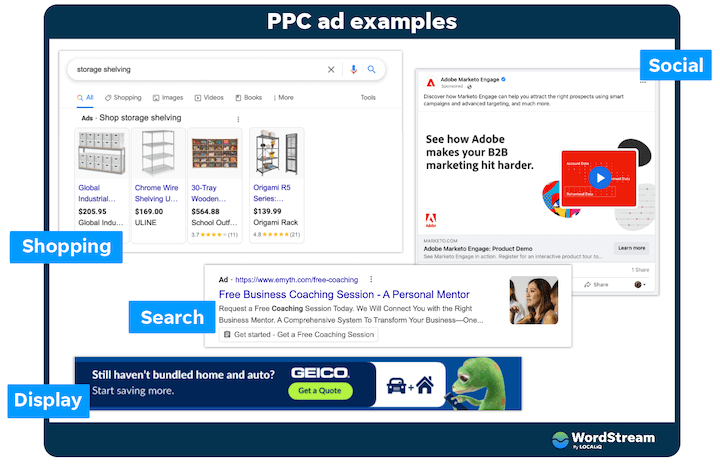
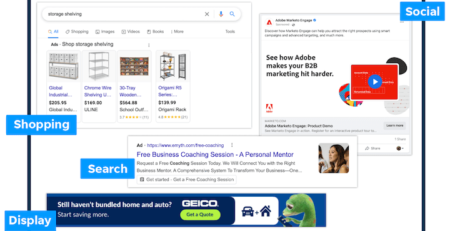
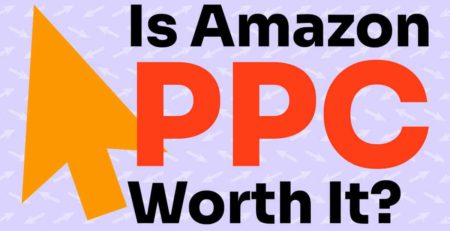
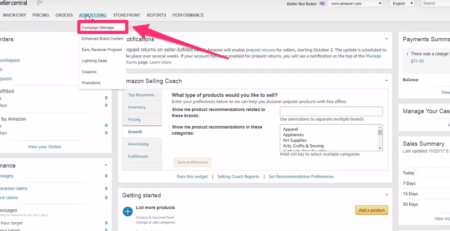
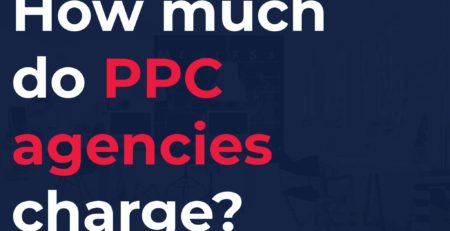
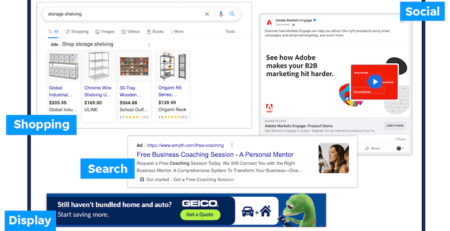
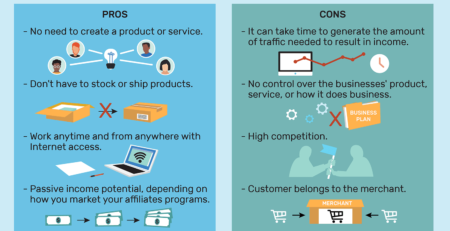
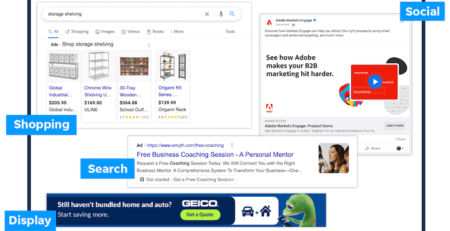

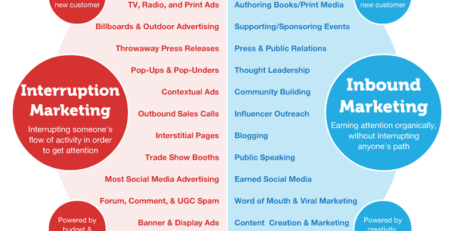

Leave a Reply